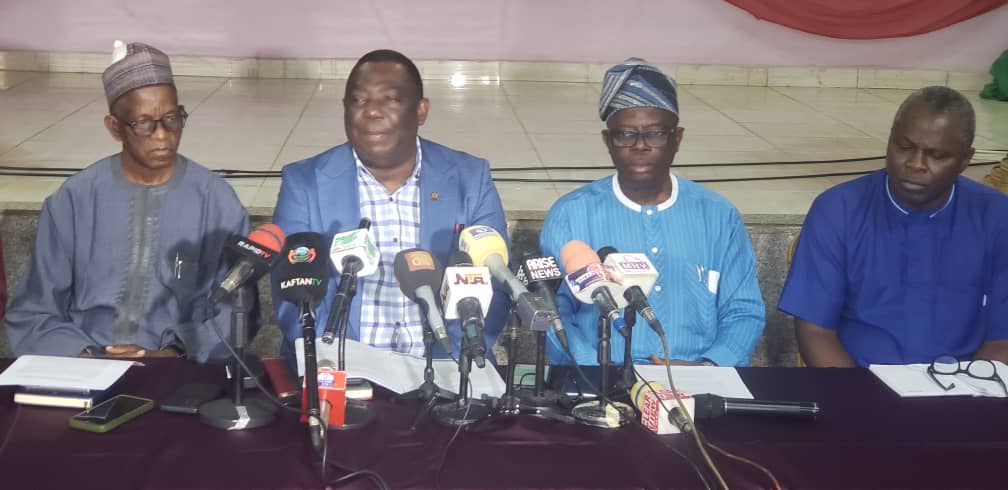***Warns that inherent risk may lead to collapse of sector
The Forum of Concerned Stakeholders in the Nigerian Minerals and Mining Sector have expressed concerns over the recent increases in fees, rents, and royalties, which they say could drive many operators out of business.
They also lamented the closure of mining sites and confiscation of equipment by state governments, describing these actions as illegal and detrimental to investors’ confidence.
The Forum led by the President of the Nigerian Mining and Geosciences Society, NMGS, Prof. Olatunji Akinade gave the indication while briefing newsmen on the state of affairs in the Nigerian Mining sector on Wednesday in Abuja.
According to Professor Akinade, the steep hikes could force many operators out of business, particularly in the current harsh economic climate, and called for a review of the new rates to ensure fairness.
The President of the NMGS expressed concerns over state governments interference in mining operations despite the Constitution and the Nigerian Minerals and Mining Act of 2007 granting exclusive control of mineral resources to the Federal Government, many states have established their regulatory bodies.
“This, according to stakeholders, has led to a chaotic environment, with mining sites being closed and equipment confiscated, all in violation of federal laws” he stressed.
“They said state interference has eroded investor confidence, with stakeholders warning that the resulting risks could sabotage the Federal Government’s vision for accelerated investment in the sector”.
Professor Akinade urged the Minister to declare state-run regulatory agencies in the mining sector illegal, as their actions contravene federal laws.
With the sector’s potential for economic diversification hanging in the balance, he urged the government to act swiftly to prevent a total collapse of the industry.
He criticized the review of the Mining Act, arguing that it lacks sufficient input from key industry players and warned that excluding stakeholders could lead to laws that will fail to address the sector’s most pressing needs, calling for a return to the inclusive consultation processes that shaped the current legal framework.
He therefore proposed several measures to address the sector’s challenges, which includes aligning the operations of the Mining Marshalls with existing federal departments, decentralizing the approval of mineral titles and permits to improve efficiency and called for urgent reforms to prevent the sector’s decline.
Professor Akinade emphasized commitment to partner the government to ensure the success of Nigeria’s mining industry, which holds significant potential for economic diversification.
“Without unified action from both federal and state governments, however, this potential may remain unrealized,” Professor Akinade emphasized.
He however, commended the Minister of Solid Minerals Development, Dr. Oladele Alake for the closure of the Mineral Sector Support for Economic Diversification (MinDiver) Project, which concluded in May.
Prof. Akinade noted that initiatives like the National Geodata Center and the Nigerian Mineral Decision Support System have been pivotal for the sector’s growth.

